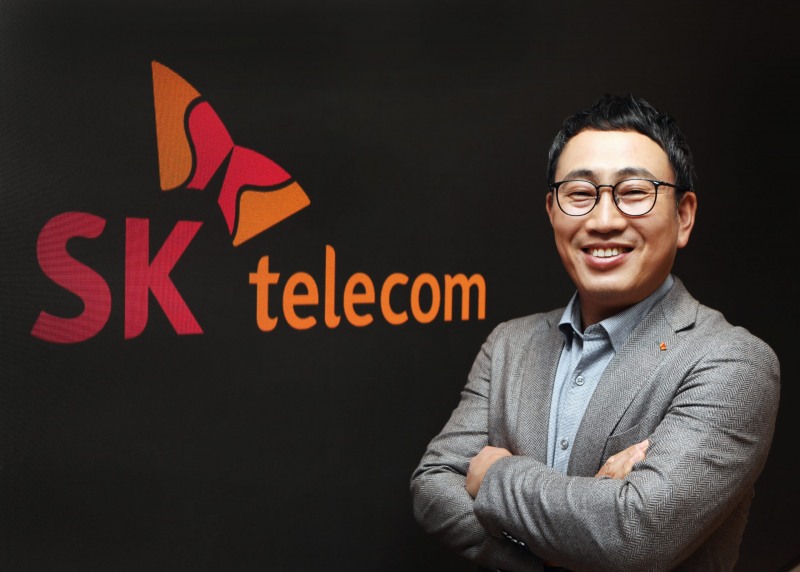 이미지 확대보기
이미지 확대보기According to the telecom industry on June 10, President Lee has pledged to greatly expand nationwide telecom and AI (artificial intelligence) benefits as part of his campaign promise to reduce living costs.
The new administration has designed telecom policy with a practical focus to ease household expenses. However, the three major telecom companies (SKT, KT, LG Uplus) are concerned these policies could undermine profitability in their core telecom business. They also expect the policies to impact their ongoing efforts to diversify into AI and other non-telecom businesses.
SKT is particularly troubled. The company still faces one-off costs from the USIM personal information leak, compounded by the government’s push for rate cuts and the announcement of free AI distribution.
According to Lim Bong-ho, Head of SKT’s MNO Business Division, the cost per physical USIM is KRW 7,700. With approximately 20 million USIM replacements required for all SKT subscribers, the total cost for USIMs alone amounts to KRW 154 billion. Adding KRW 30–40 billion in distribution costs, SKT’s total expected outlay for this incident is about KRW 194 billion.
Lim stated, “We are accounting for the costs as they occur,” indicating SKT will reflect these costs in its Q2 results this year. Given that SKT posted separate operating profit of KRW 450.4 billion in Q2 last year, the industry believes the company can absorb the KRW 194 billion hit.
However, a decline in performance appears inevitable. In addition to USIM replacement costs, SKT must consider compensation to agencies, waivers of penalty fees in collective disputes, subscriber losses, potential fines, and lawsuits related to the data breach.
While SKT faces worsening profitability in its core telecom business due to the USIM hacking incident, its future growth engine—the AI business—is also under threat. The government’s plan to distribute a ‘Korean ChatGPT’ for free is expected to adversely affect B2C (business-to-consumer) AI monetization, a key revenue stream.
Currently, the three telecom companies are pursuing business diversification with flagship AI B2C services: SKT’s ‘A dot (A.)’, KT-Microsoft’s ‘Korean AI’, and LG Uplus’s ‘IXIO’. With 5G subscriptions plateauing at around 70%, they are increasingly looking beyond telecom for new growth.
SKT announced in March that it would begin monetizing ‘A dot (A.)’ for B2C, streamlining underused features and expanding core AI services to boost competitiveness.
According to SKT’s earnings report, AI business revenue—including 'A dot (A.)’—was KRW 102 billion in Q1 this year, accounting for about 3.3% of total revenue, up 11.1% year-on-year.
An industry insider commented, “Until the introduction of 6G, telecom operators have no special new revenue source in telecom. Rather than imposing direct or indirect regulations on AI and telecom as public goods, we hope that, as the new administration is just beginning, relevant ministries and agencies will work together to develop concrete implementation plans.”
Jeong Chaeyun (chaeyun@fntimes.com)
[관련기사]
- SKT Appoints Group's Strategic Expert, Marking Pinnacle in 'AI Company' Transformation
- SKT's 'A dot' vs. LG U+'s 'ixi-O'... The Battle for AI Ecosystem Expansion Begins
- Previewing the Future of Financial AI : '2025 Korea Financial Future Forum' Concludes Successfully
- Naver Cloud, “Inference AI is Essential to Sovereign Strategy… Launch Set for First Half of This Year”
가장 핫한 경제 소식! 한국금융신문의 ‘추천뉴스’를 받아보세요~
데일리 금융경제뉴스 Copyright ⓒ 한국금융신문 & FNTIMES.com
저작권법에 의거 상업적 목적의 무단 전재, 복사, 배포 금지















![Tesla's Humanoid Rival Has Arrived — Boston Dynamics Eyes $70 Billion Valuation [K-Humanoid Wars, Part 1]](https://cfnimage.commutil.kr/phpwas/restmb_setimgmake.php?pp=006&w=284&h=214&m=5&simg=2026022010243207659141825007d12411124362.jpg&nmt=18)

![Samsung's 'Last Chance': Lee Jae-yong Pushes HBM4 as Make-or-Break Moment [KFT Topic]](https://cfnimage.commutil.kr/phpwas/restmb_setimgmake.php?pp=006&w=284&h=214&m=5&simg=2026012623242806011141825007d122461258.jpg&nmt=18)
![Hanwha Aerospace Stock Surges 3,500% in Six Years on 'Extraordinary Strength' [KFT Topic]](https://cfnimage.commutil.kr/phpwas/restmb_setimgmake.php?pp=006&w=284&h=214&m=5&simg=2026012609443900770141825007d12411124362.jpg&nmt=18)
![Tesla's Humanoid Rival Has Arrived — Boston Dynamics Eyes $70 Billion Valuation [K-Humanoid Wars, Part 1]](https://cfnimage.commutil.kr/phpwas/restmb_setimgmake.php?pp=006&w=110&h=79&m=5&simg=2026022010243207659141825007d12411124362.jpg&nmt=18)


!['Samsung's Bet on the Future' — Rainbow Robotics, Korea's Humanoid Pioneer [K-Humanoid Wars, Part 2]](https://cfnimage.commutil.kr/phpwas/restmb_setimgmake.php?pp=006&w=110&h=79&m=5&simg=2026022413501808272141825007d12411124362.jpg&nmt=18)
